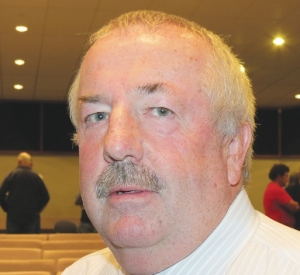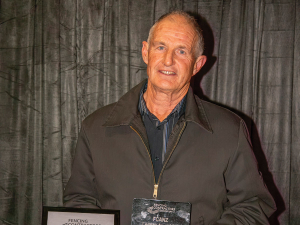A group calling itself the Tararua Community Economic Society – dairy farmers, local business people and organisations and companies servicing the rural community – says One Plan has the potential to wipe $60 million off the incomes of local dairy farmers, cut up to 330 local jobs and reduce the value of dairy farms in the district.
One of the main speakers, Rabobank manager George Murdoch – who’s worked in rural banking for 30 years – told the meeting he’s seen farmers survive a lot of adversity over the years.
“One of the worst times was in the mid 1980s when the government of the day removed a farm support programme (SMPs) and concessionary interest rates on Rural Bank loans,” he says.
However, Murdoch believes One Plan has the potential to have the same dramatic effect on farmers as the 1980s reforms. He predicts that if One Plan goes ahead farm incomes will drop, costs will rise and up to 30% of dairy farms in the district may not be viable.
“Productivity on some of these properties is going to decline further as farmers and their families no longer see a prosperous future.
“The next generation of farmers so vital to the industry and its survival are going to do something else or farm somewhere else,” Murdoch told the meeting.
“Farms will sell, but at significantly lower levels. Rural towns are going to suffer as lower levels of income and employment filter through and capital investment in both agriculture and industry is likely to be reduced.
“Top farmers in our region are likely to leave the area and farm in other areas where the land use restrictions are less. You can say that I am over-dramatising this, but I am not sure that anyone here can get up and say this is not going to happen,” he says.
Murdoch says while HRC has tried to provide a level of comfort about the implementation of One Plan, by issuing discretionary consents and other assistance, he says there is still one further obstacle.
“The main issue I see is that it’s going to require a high level of trust between both parties and that’s not something I see here today,” he says.
Dannevirke Lawyer Stuart Smith says the thought of dairy farmers having to rely on discretionary resource consents sends shivers down his spine.
“I know the HRC people have tried to convince you that it really won’t be such a problem, but I think the anti-speakers may have a different view of that.
“To live with discretionary consents is going to make it very difficult for you to sell your farm to someone outside this area. Who wants to come from the Waikato to buy a farm where their production is based on a discretionary consent?” Smith added.

















